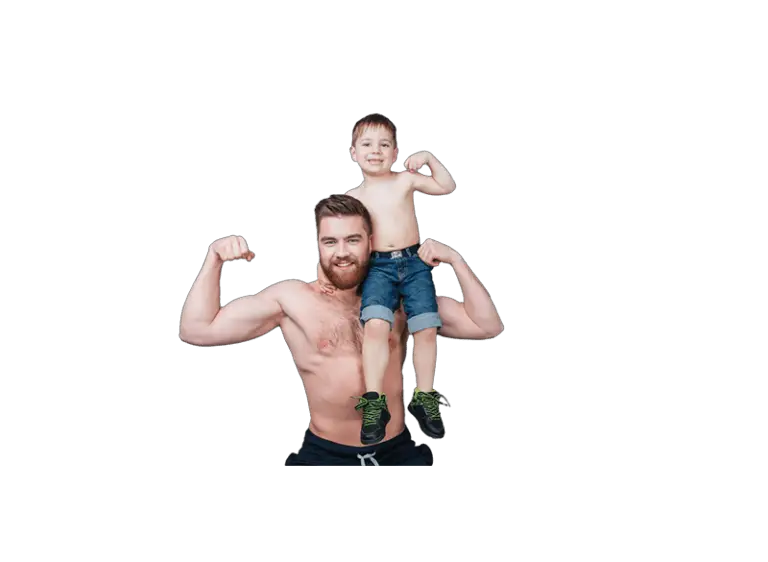Most People Don’t Have 20 Years’ Experience. They Have 1 Year’s Experience Repeated 20 Times.
Introduction
Everyone just kind of chills at a certain point, right?
You must’ve seen it. It’s everywhere.
People work seriously hard to acquire skills and learn new things, and eventually, they hit that
–respectable level of society.–
They establish themselves as in charge of something.
Everybody says “Good for you!” when theyre schmoozing at parties.
They have become a reasonably sized fish in a respectably sized pond.
Or a small fish, with a lot of smaller fish friends in a sh*tty little pond.
Or they’re a big fish, that’s been beaten down by life and given up on their dreams!
Unfortunately, Most people’s growth over time does not appear to be a straight line up and to the right. Most of us grow, then grow a little less intensely, then plateau, then slooooowly start sliding down the path to comfort and mediocrity.
This article will tell you why I think this is so common and give you 4 things that you can do to make sure it doesn’t happen to you.
Gaining experience is not passive

You would hope that doing a job for longer would make you more competent and sharp over time, and it certainly helps. But it’s not like it’s an automatic process.
Without considered consistent effort, People easily become accustomed to a certain level of comfort.
They coast.
They stop chasing.
The years start to fly past them.
In this life, you are either growing or dying.
I think this is why a lot of people get so frustrated with their 9-5 jobs.
Not all the time, but definitely a good chunk of the time.
When you are micromanaged or constantly take sh-t from your boss, or some middle manager, you eventually look them up and down and notice something.
These people telling you what to do are not above you.
These are not brilliant geniuses or seasoned hustlers or insightful visionaries who you’re getting hassled by.
These are often people who started at the bottom, and just stuck around for so long that of course they’re going to be promoted.
What’s terrifying about this whole thing, is that they were once exactly where you are now.
The real reason why the rich get richer
You might assume an article like this to be vague and self-helpy.
I love a good vague self-helpy article as much as the next man, but this is not that article. Continual acquiring of relevant skills is an absolute necessity for anybody looking to gain any kind of material success.
Alex Hormozi is an entrepreneur who owns a number of service-based online businesses. His companies do over $100 million per year in sales, and he also creates business content for his personal brand.
Talent stacking is one of his concepts that I think is brilliant. Here he is explaining how it all works.
Without butchering his idea too much, relevant skills become exponentially more valuable as you stack them on top of each other. Whilst learning these skills is linear, each new skill learned gives you access to a higher leverage opportunity.
(diagram of exponential growth)
Example: I like math
I learn math for a while, and I can make $25k with my skills.
Then I learn bookkeeping for a while, and I can make $30k with my skills.
Next, I learn accounting for a while, and I can make $60k with my skills.
After that, I learn about tax optimization, and I can make $120k with my skills.
Finally, I learn about capital markets, and I can make $500k with my skills.
You can see here that when I just know math, the acquisition of a new skill only gets me a $5k increase in salary. But after stacking multiple relevant leverageable skills on top of each other, the acquisition of a new skill gives me access to $380k more money every year.
So as you learn more skills, your opportunity for wealth disproportionately grows.
How to get more experienced and not just older

The idea, then, is to have real relevant skills to show for your time spent working.
Here are 4 things that you can do, to make sure you get significantly more skilled over time rather than just older and fatter and more beaten down by life!
Redefine your job as another way to grow
You want to take responsibility for the level of skills that you have, and become more conscious of whether or not you are moving forward day by day.
If you can start to reframe your work as a place to learn and apply skills, then a couple of good things will happen.
First, it will quickly become apparent whether or not you should change jobs. If you are “learning accounting” but have done the same basic book-keeping with little variation for the last year, then you aren’t growing.
If your boss is happy with your work but you aren’t constantly improving, then you might want to think about looking somewhere else.
Secondly, by making growth the north star over a paycheck, you stop seeing work as just specifically the things that you are payed by your employer to do. Your work becomes anything that you can do to gain skills.
Thinking in this way, You will find yourself habitually going above and beyond what most people consider a good day’s graft.
Put yourself in the weeds

In kitchens, to be “in the weeds” is when you have more to do than you really have the time for. It could range anywhere from being slightly understaffed one night, to the oven catching fire during a busy service with reviewers in the restaurant.
There are levels to the weeds.
One night, a table told the restaurant manager that they had called ahead to ask if a cheesecake could be made for their birthday. They had been told it was no problem over the phone. They were excited to see it.
The kitchen was never told until the guests walked in.
We didn’t even have cheese for god’s sake.
The pastry chef, Jo, started laughing and ran into the back. 20 minutes later, he had made 3 different cheesecakes from scratch. They were not his best work, but they got us out of trouble.
When I asked him why the f-ck he found the whole thing so funny, he said something that I have used ever since.
This works in restaurants, in business, and in life.
“There are two places you learn.
In France, and in the weeds….
…And I’ve never been to France”
Become aware of your self-imposed limitations
All throughout childhood, I came to “learn” certain things about myself that defined what I thought I could be good at.
I was good at math and bad at English.
I was brilliant at science and horrible at geography.
I was academic and hard-working, but I wasn’t creative or entrepreneurial.
It’s not like you have no weaknesses whatsoever. You want to be aware of the gifts you’ve been given, but I think that most of this judgemental thinking is harmful and restrictive.
When you are really young, you want to play sports and fight and get your homework done as fast as possible.
So as a kid, I only read books when I didn’t have a choice.
This meant that I got pretty average test results in English exams.
I was, apparently, “not great at English”.
Maths was more intuitive, and I could figure it out without studying.
I enjoyed competing with other boys to see who could finish the test first.
It was like playing sports.
I had fun.
I was “good at math”
As wild as it sounds, these preconceptions still affect me today. When I first started this blog, I was hesitant because I didn’t think I could write articles that were really all that.
But I hadn’t really ever written any articles. I had put in absolutely zero effort and concluded that I just didn’t have it in me.
I was like this elephant.
The barrier wasn’t real.
If there’s something you want to learn that you currently suck at, test that barrier that you think is there.
Throw some time into learning. Commit to finding out what you are capable of.
You might be shocked by your own bullsh-t.
Think about your skill stack
Whatever level you’re at right now in your career, is because of the skills that you offer to the marketplace.
The value that your work brings.
To move up the ladder, you need to become conscious of what the next skill in your stack would look like.
You won’t completely see how the future will play out, and you don’t totally understand those skills that you have not yet learned. But by understanding the value that you bring, you can start to envision what your future stack might look like.
Right now, my website gets very little traffic. If I think about my own skill stack, there are glaring holes in my own skillset. It would be ludicrous to expect success with the amount of skill that I have.
I know, at this stage, a small amount about writing.
A tiny bit about SEO.
Nothing about design.
Monetization?
Branding?
Social media?
Video?
I know f-ck all about any of that stuff.
As I go about acquiring these skills, I can start to build real leverage. Although I use myself as an example, everybody has their skill stack and that thing that they need to figure out next.
It’s on you to keep ticking those bad boys off the list!
Where this quote comes from
Steven Covey is the former CEO of FranklinCovey, a publicly-traded company with a $500 million market cap. Back in the day, Covey gave a young Richie Norton (later a best-selling author/multimillionaire) the opportunity to work at his company.
In Richie’s own words:
I felt I was too young and inexperienced even to entertain the idea. “What would the gray hairs think?” Then, Covey taught me a priceless principle that would forever change my outlook on the nature of education and experience. He said, “Richie, experience is overrated. Some people say they have twenty years’ experience, when, in reality, they only have one year’s experience, repeated twenty times.”






